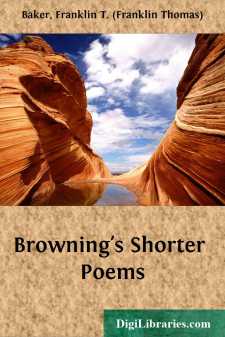Categories
- Antiques & Collectibles 13
- Architecture 36
- Art 48
- Bibles 22
- Biography & Autobiography 813
- Body, Mind & Spirit 142
- Business & Economics 28
- Children's Books 17
- Children's Fiction 14
- Computers 4
- Cooking 94
- Crafts & Hobbies 4
- Drama 346
- Education 46
- Family & Relationships 57
- Fiction 11829
- Games 19
- Gardening 17
- Health & Fitness 34
- History 1377
- House & Home 1
- Humor 147
- Juvenile Fiction 1873
- Juvenile Nonfiction 202
- Language Arts & Disciplines 88
- Law 16
- Literary Collections 686
- Literary Criticism 179
- Mathematics 13
- Medical 41
- Music 40
- Nature 179
- Non-Classifiable 1768
- Performing Arts 7
- Periodicals 1453
- Philosophy 64
- Photography 2
- Poetry 896
- Political Science 203
- Psychology 42
- Reference 154
- Religion 513
- Science 126
- Self-Help 84
- Social Science 81
- Sports & Recreation 34
- Study Aids 3
- Technology & Engineering 59
- Transportation 23
- Travel 463
- True Crime 29
Our website is made possible by displaying online advertisements to our visitors.
Please consider supporting us by disabling your ad blocker.
Browning's Shorter Poems
Categories:
Description:
Excerpt
INTRODUCTION
LIFE OF BROWNING
Robert Browning was born in Camberwell, London, May 7, 1812. He was contemporary with Tennyson, Dickens, Thackeray, Lowell, Emerson, Hawthorne, Darwin, Spencer, Huxley, Dumas, Hugo, Mendelssohn, Wagner, and a score of other men famous in art and science.
Browning's good fortune began with his birth. His father, a clerk in the Bank of England, possessed ample means for the education of his children. He had artistic and literary tastes, a mind richly stored with philosophy, history, literature, and legend, some repute as a maker of verses, and a liberality that led him to assist his gifted son in following his bent. From his father Robert inherited his literary tastes and his vigorous health; in his father he found a critic and companion. His mother was described by Carlyle as a type of the true Scotch gentlewoman. Her "fathomless charity," her love of music, and her [page viii] deep religious feeling reappear in the poet.
Free from struggles with adversity, and devoid of public or stirring incidents, the story of Browning's life is soon told. It was the life of a scholar and man of letters, devoted to the study of poetry, philosophy, history; to the contemplation of the lives of men and women; and to the exercise of his chosen vocation.
His school life was of meagre extent. He attended a private academy, read at home under a tutor, and for two years attended the University of London, When asked in his later life whether he had been to Oxford or Cambridge, he used to say, "Italy was my University," And, indeed, his many poems on Italian themes bear testimony to the profound influence of Italy upon him. In his teens, he came under the influence of Pope and Byron, and wrote verses after their styles. Then Shelley came by accident in his way, and became to the boy the model of poetic excellence.
In 1838 appeared his first published poem, Pauline. It bears the marks of his peculiar genius; it has the germs of his merits and his defects. Though not widely read, it received favorable notice from some of the critics. In 1835 appeared Paracelsus, in 1837 Strafford, in 1840 Sordello. From this time on, for the fifty remaining years of his life, his poetic activity hardly ceased, though his poetry was of uneven excellence.[page ix] The middle period of his work, beginning with Bells and Pomegranates in 1842, and ending with Balaustion's Adventure (a transcript of Euripides' Alcestis) in 1871, was by far the richest in poetic value.
In 1846 he married Elizabeth Barrett, the poet. They left England for Italy, where, because of Mrs. Browning's feeble health, they continued to reside until her death in 1861. The remainder of his life was divided between England and Italy, with frequent visits to southern France. His reputation as a poet had steadily grown. He was now one of the best known men in England. His mental activity continued unabated to the end. Within the last thirty years of his life he wrote The Ring and the Book—his longest work, one of the longest and, intellectually, one of the greatest, of English poems; translated the Agamemnon of Æschylus and the Alcestis of Euripides; published many shorter poems; kept up the studies which had always been his labor and his pastime; and found leisure also to know a wide circle of men and women....


